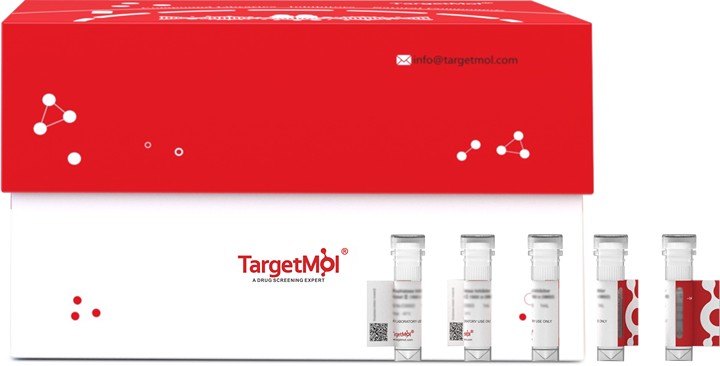Shopping Cart
- Remove All
 Your shopping cart is currently empty
Your shopping cart is currently empty

PKM1 Protein, Mouse, Recombinant (His) is expressed in Baculovirus-Insect Cells. The accession number is P52480.

| Pack Size | Price | Availability | Quantity |
|---|---|---|---|
| 50 μg | $398 | Backorder |
| Biological Activity | Activity testing is in progress. It is theoretically active, but we cannot guarantee it. If you require protein activity, we recommend choosing the eukaryotic expression version first. |
| Description | PKM1 Protein, Mouse, Recombinant (His) is expressed in Baculovirus-Insect Cells. The accession number is P52480. |
| Species | Mouse |
| Expression System | Baculovirus Insect Cells |
| Tag | N-His |
| Accession Number | P52480 |
| Synonyms | Pykm,Pkm2,Pkm,Pk-3,Pk3,Pk-2 |
| Construction | A DNA sequence encoding the Mouse PKM (NP_001240812.1) (Pro2-Pro531) was expressed with a polyhistidine tag at the N-terminus. |
| Protein Purity | ≥ 90% as determined by SDS-PAGE. |
| Molecular Weight | 60.25 kDa (predicted); 59 kDa (reducing contition) |
| Endotoxin | < 1.0 EU per μg of the protein as determined by the LAL method |
| Formulation | Supplied as sterile 20 mM Tris, 500 mM NaCl, 10% glycerol, pH 8.0. Please contact us for any concerns or special requirements. Please refer to the specific buffer information in the hardcopy of datasheet or the lot-specific COA. |
| Stability & Storage | It is recommended to store recombinant proteins at -20°C to -80°C for future use. Lyophilized powders can be stably stored for over 12 months, while liquid products can be stored for 6-12 months at -80°C. For reconstituted protein solutions, the solution can be stored at -20°C to -80°C for at least 3 months. Please avoid multiple freeze-thaw cycles and store products in aliquots. |
| Shipping | Kinases are highly recommended to be shipped at frozen temperature with blue ice or dry ice.Shipment made at ambient temperature may seriously affect the activity of the ordered products. |
| Research Background | PKM (Pyruvate Kinase M1/2) is a protein coding gene located on human chromosome 15q23. PKM is also known as PK3, TCB, p58, OIP3, PKM2, CTHBP, THBP1 and HEL-S-30. The human PKM gene encodes a 57937 Da protein containing 531 amino acids. The PKM protein is ubiquitously expressed in brain, esophagus and other tissues. Among its related pathways are Glucose metabolism and Photodynamic therapy-induced HIF-1 survival signaling. PKM is related to MHC class II protein complex binding. PKLR is an important paralog of PKM gene. PKM is associated with some diseases, including Pyruvate Kinase Deficiency Of Red Cells and Pontocerebellar Hypoplasia, Type 10. PKM1 (Pyruvate kinase isozymes M1) and PKM2 (Pyruvate kinase isozymes M2) are isozymes of PKM. PKM1 is expressed in muscle and brain, and PKM2 is expressed in embryogenesis, stem cells, adipose tissue and pancreatic islets, and is the predominant form found in cancer cells. PKM1 is involved in several biological processes such as metabolic reprogramming, and innate and acquired immune response. It participates in protein interactions, protein synthesis, glycolysis, and intranuclear signal transduction. PKM2 has been used to study the effects of phosphorylated PKM2 in inactivating myofibroblasts during renal fibrosis. The embryonic PKM2 controls β-catenin transactivation, which plays an important role in aerobic glycolysis or the Warburg effect. PKM2 induces gene transcription and tumorigenesis. |

Copyright © 2015-2025 TargetMol Chemicals Inc. All Rights Reserved.